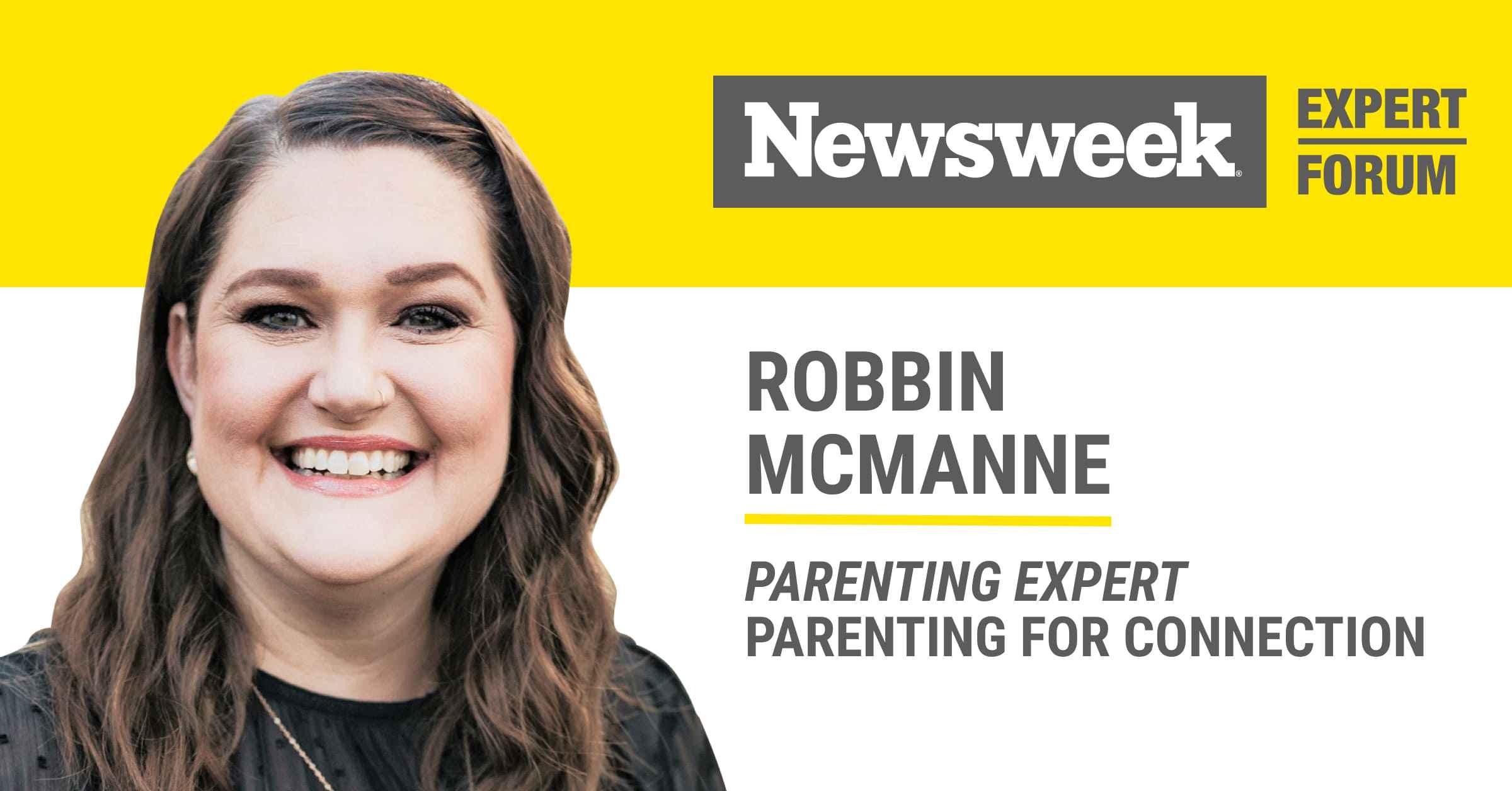
Every parent or caregiver knows this story: Parent asks child to do something eminently normal and reasonable (finish dinner, turn off the TV, brush teeth); child doesn't want to; parent insists; child refuses; yelling ensues. This near-universal parenting experience — of handling a child who is being willful and stubborn — is one that causes parents and caregivers no small amount of anxiety and shame. Social pressures to be the "right" kind of parent, and implicit messages that parents should somehow "know how to deal with" all aspects of raising children, contribute to heaping these feelings upon beleaguered moms, dads, and other caregivers. For those raising children with diverse learning needs, health issues, or emotional and identity struggles, the feelings are often intensified.
This is precisely the struggle that brought Robbin McManne to the field of parent coaching. McManne, a certified parent coach and author, as well as CEO of the consultancy Parenting for Connection, faced many of these same struggles while parenting her own child. McManne recalls that in infancy her son cried constantly, and that when she sought help, she instead received messages (implicit and explicit) that her child's crying was her fault, sending her into a "shame spiral."
When McManne discovered the "Peaceful Parenting" movement, she realized many of the problems she and her son were experiencing could be better understood and managed through awareness of triggers (both for parents and children) and finding alternatives to punishment. She ultimately left a career in marketing to become a full-time parenting coach, and since 2017 has been working with clients around the world. She also hosts a popular podcast, "Parenting Our Future."
The purpose of connection-based parenting isn't just to get kids to cooperate without having to resort to threats or bribery, McManne is quick to note. "It's really all about leading with relationship and connection first, in order to get cooperation," she says. "It's not about letting your kids do whatever they want, or getting away with disrespect or not listening." McManne explains that parenting with connection begins with validating and affirming the feelings kids are having, without yelling or relying on transactional behavior modification. Kids "co-regulate off of [their parents]," McManne says, taking emotional cues from the tenor and register of their parents' speaking. When parents are calm and confident, "our kids can lean into us and stop hustling to get their needs met, because we become figures of stability."
In her courses, McManne teaches parents to view these arguments simply as communication — but that communication is "a skill that hasn't been fully developed yet," because children's thinking relies heavily on the amygdala (which regulates emotions, and is overly dominant in a child's incompletely developed prefrontal cortex). Many children's arguments stem from "a need that isn't getting met — attention, affection, unconditional love — or they have a feeling that's invalidated," McManne explains. "What I do is based in science. We know that when we can validate an emotion, it releases soothing neurotransmitters to help calm us down. So, if you lead with curiosity instead of anger, then you and your child can problem-solve together. And you're not taking it personally."
She acknowledges that there's a certain dirty secret to all of this: "We [parents] are the ones who need the most work."
McManne's approach to parenting may be relevant not only to families managing ADHD, OCD, or behavior problems, but also those with children who increasingly identify along the LGBTQIA+ spectrum. McManne has written extensively about parenting children who are trans. "When a child comes to you and says they are trans, first and foremost, you have to know that it's probably one of the hardest things that they've ever done," she says. "And yes, it may be a shock to you. And yes, you may need to take a little bit of time to process your feelings about that." However, she cautions, "we also have to keep in mind that how we react and respond, sets up things for the future for our child."
McManne draws a sharp line between affirming and accepting a child's choices. "Affirming them is really where we want to go," she says. "And it's not accepting them. Because when you say 'accepted,' that means you're accepting that something is 'off' or 'wrong' with them. Affirming them is saying, 'Yes, you are.' And we want to meet them where they are."
Above all, McManne seeks to foster relationships in which the kids know they can confide in the adults around them and feel safe and supported. McManne stresses that children need to know unequivocally they can always reach for their parents — not only when they are proud, or excited, but also if they are scared or in trouble. "When a child is struggling or suffering in silence, that's when they are in danger," she says. The antidote, McManne says, is "to show up for your child with curiosity, empathy and unconditional love."
"lasting" - Google News
July 22, 2022 at 12:48AM
https://ift.tt/tQjCwSn
How 'Peaceful Parenting' Can Create Lasting, Positive, Less Stressful Parent-Child Relationships - Newsweek
"lasting" - Google News
https://ift.tt/K7PbawM
Shoes Man Tutorial
Pos News Update
Meme Update
Korean Entertainment News
Japan News Update
Bagikan Berita Ini














0 Response to "How 'Peaceful Parenting' Can Create Lasting, Positive, Less Stressful Parent-Child Relationships - Newsweek"
Post a Comment